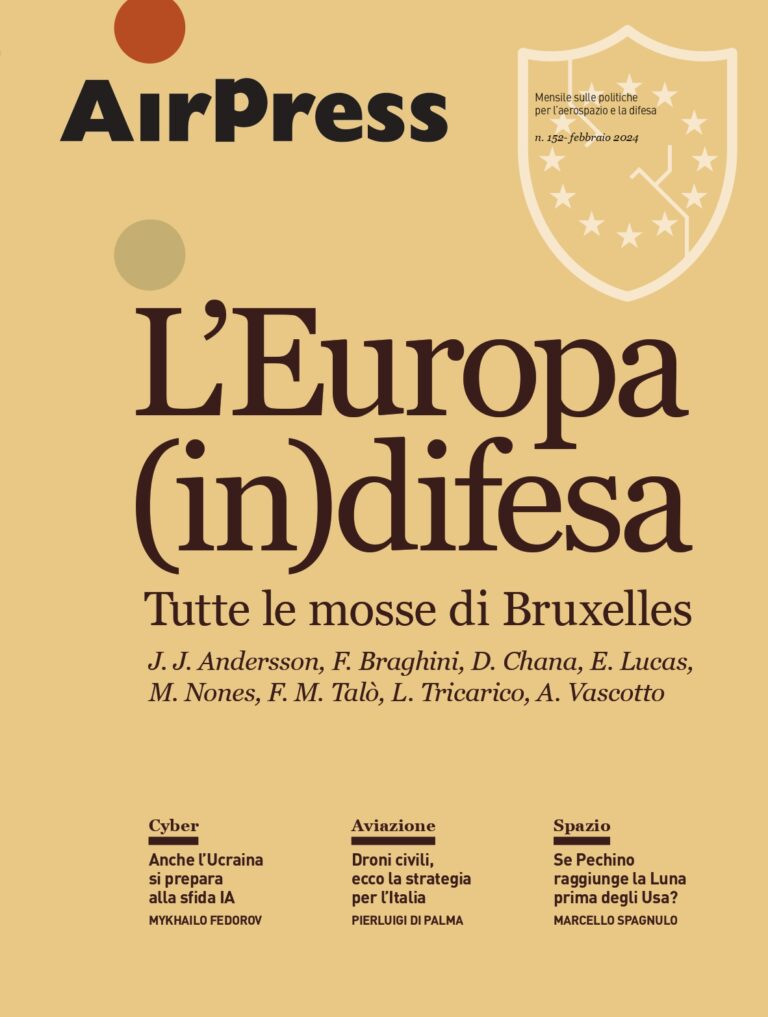Q: On several recent occasions you have expressed the need for an “expansion of Europe’s financial firewall”. Do you believe that the present cooperation between the governments of Germany, France and Italy is going in this direction?
A: The financial situation in Europe is going to be at the top of our agenda when I welcome Prime Minister Monti to the Oval Office. As I’ve said throughout the crisis, I believe that Europe has the economic and financial capacity to overcome this challenge. Over the last two years, Europe has taken a number of crucial yet very difficult steps to address the mounting crisis. In Italy and across Europe, citizens are making painful sacrifices. Under Prime Minister Monti’s leadership, Italy is now taking impressive steps to modernize its economy, reduce its deficit through a combination of revenue and spending measures, and put the country back on the path toward growth. More broadly, European governments have come together to reform the architecture of the European Union.
One of the lessons that the United States learned during our own recent financial crisis was the importance of demonstrating to our citizens, businesses, and the financial markets that we were committed to doing whatever it took to solve the crisis. That’s why we’ve urged our European partners to erect a large enough financial firewall to prevent the crisis from spreading. I agree with what Prime Minister Monti has said—if Europe puts in place a large enough firewall, it significantly reduces the probability that it will need to be used. What is necessary now is for all European governments to show their absolute commitment to the future of economic integration in Europe.
Q: Why is the solution of the debt crisis in the Eurozone so important for the United States?
A: It’s so important because our economic fortunes are inextricably linked, and our economic relationship with Europe is an important part of our efforts to create jobs and prosperity in the United States. The European Union is America’s single largest economic partner, and trade and investment between us supports millions of jobs on both sides of the Atlantic. Our banks and financial markets are deeply linked. When Europe is doing well, it’s good for American jobs and businesses. When growth in Europe slows or your financial markets are unsettled, we feel the consequences, just as you felt the impact of the U.S. financial crisis four years ago.
Put simply, the United States has an enormous stake in Europe’s growth and the Euro area’s success. That’s why I’ve consulted closely and repeatedly with my European counterparts throughout this crisis. I shared the relevant lessons of our own recent crisis, as they’ve worked to meet this challenge. My meeting with Prime Minister Monti is the latest step in our ongoing cooperation. I look forward to reaffirming to the Prime Minister the message that I’ve conveyed to my European partners before, most recently in Cannes during the G-20 Summit—the United States will continue to do our part to support our European friends as they work to resolve this crisis.
I would just add that this about more than just economics. Americans and Europeans have a deep and abiding friendship, forged in war and strengthened in peace. We very much want to see Europe recover and thrive. Moreover, Italy is one of our strongest allies, and we partner with Europe on everything we do around the world. When Europe is strong, prosperous and secure, we are more effective together and the world is a more peaceful and prosperous.
Q: In May Chicago will host the NATO summit. One of the topics will be the transition in Afghanistan. Which is the role that Italy can play in the post-war scenario?
A: Italy has played a crucial and leading role in NATO’s International Security Assistance Force in Afghanistan, and the men and women of your armed forces have served bravely and selflessly, as have your diplomats and development experts. Together with our Afghan partners and our 50-nation coalition, we’ve made real progress towards achieving our shared goals of defeating al Qaeda, breaking the Taliban’s momentum, and training Afghan National Security Forces so that Afghanistan can take the lead for their own security. Courageous Italians have given their lives to achieve this progress, and we’re grateful for the support of the Italian people for this vital mission. We appreciate Italy’s commitment to the agreements we reached at the 2010 Lisbon summit to support an Afghan-led process of transition that began last year, which will put Afghans in the lead for security by the end of 2014.
I look forward to welcoming Prime Minister Monti and our fellow heads of State to my hometown of Chicago for the NATO Summit in May, which will be an opportunity to chart the next phase of the transition in Afghanistan. The long-term Strategic Partnership that Italy recently signed with Afghanistan is a strong and welcome statement that Italy’s commitment extends beyond 2014, just as the United States is building an enduring partnership with the Afghan people. At the same time, Italy and the United States have joined the rest of the international community in offering political support to an Afghan-led reconciliation process that can help bring about the end of an insurgency that has threatened the Afghan people and the rest of the world for far too long.
The Chicago Summit will also be an opportunity for us to consult about other issues on the NATO agenda. NATO is the cornerstone of the transatlantic Alliance and European security. As the intervention in Libya demonstrated, it is also a cornerstone of global security. Looking ahead, we need to ensure that when the next unexpected crisis arises, we’re prepared to respond. That’s why NATO’s Strategic Concept is preparing the alliance for future challenges and missions. It’s why NATO defense ministers recently made the decision to upgrade our shared intelligence, surveillance, and reconnaissance capabilities. And it’s why, when I host the NATO Summit this May, we’ll take significant steps to ensure that the Alliance has the capabilities necessary to meet the challenges of our time, including making progress toward a NATO missile defense system.
Q. The Arab Spring is happening not too far from the Italian shores. How can our countries help the new Arab governments to build more stable, free and prosperous societies?
A: It’s been an extraordinary year as citizens across the Middle East and North Africa have stood up for their dignity and universal rights. Democratic transitions in Tunisia, Egypt and Libya are now underway. Along with the international community, we’ve made it clear that the horrific violence against the Syrian people must end and that Bashar Assad must step down so that a democratic transition can begin immediately.
Each of these countries will face political and economic tests on the road to democracy, and the United States and Europe share a profound interest in seeing these transitions succeed. The people of the region will determine their own future, but the United States and Europe can and must support them at this defining moment. I’ve therefore made it the policy of the United States to support political and economic reform in the region. We’ll continue to support democratic reforms across the region, and we’re pursuing a package of economic reforms and partnerships to help nations address the economic grievances that are also fueling calls for change. International support can come in many forms, including trade and investment, technical assistance for elections, civil society capacity building, and basic support for universal rights.
With its deep historical experiences in political transitions, Europe has a special role to play. Italy has been a steadfast promoter of human rights, democracy and the rule of law in these countries and we applaud its efforts to support transitions that respect these values. Italy also made important contributions to our successful effort to save lives and support the Libyan people as they ended the Qadhafi regime. As I said last May, there will be perils that accompany this moment of promise, but I’m confident that, with our support, there are better and more hopeful days ahead for the people of the Middle East and North Africa, who deserve the same rights and opportunities as people around the world.
Q. In the speech that you gave in Berlin in July 2007 you said that “in this new century, Americans and Europeans alike will be required to do more – not less”. What are the new common challenges that you see ahead of all of us?
A: We’re living in an era when the fates of nations and peoples are linked like never before. In a world where financial crises can spread quickly, we need to coordinate our response, as we’ve done at the G-20, to ensure that global growth is balanced and sustained. As new threats spread across borders and oceans, we have to dismantle terrorist networks and stop the spread of nuclear weapons, confront climate change and combat famine and disease. And as citizens risk their lives in the streets of the Middle East and North Africa, the entire world has a stake in the aspirations of a generation that longs to determine its own destiny.
We must face these threats and challenges together. And we have no better way to do so than through our alliance with Europe, which is the closest and strongest alliance in the world, and rooted in our shared history and values. As I have said many times, America’s relationship with our European allies and partners is the cornerstone of our engagement with the world. We’ve seen this in Afghanistan, where our forces stand shoulder to shoulder. We saw it in Libya, where NATO rose to the occasion and took responsibility for civilian protection, the arms embargo and the no fly zone mission. Italy and its armed forces have played a vital role in these missions.
Our transatlantic partnership is the world’s most successful alliance and greatest catalyst for global action and I’m determined to keep it that way.
Q: You may not have Italian ancestry, but as you said at the Niaf Foundation gala, you are surrounded by close advisors that have it, from Leon Panetta to Janet Napolitano and general Raymond Odierno, from former Speaker Nancy Pelosi to Jim Messina and Alyssa Mastromonaco. Can you tell us about your feeling in working among so many Americans of Italian origin?
A: I was proud to attend the National Italian American Foundation Gala to celebrate the 150th anniversary of Italian unification and to pay tribute to the extraordinary contributions that Italian Americans have made to our country. As I said that night, I’m not lucky enough to have any Italian ancestry; all I’ve got to offer is a last name that ends in a vowel. But the story of Italian Americans inspires so many Americans, including me. It reminds us that in our nation of immigrants success is possible, no matter who you are or what you look like, if you’re willing to work for it.
As President, it’s an honor to work with so many colleagues and staff who trace their roots to Italy. They’re the latest in a long line of Italian-Americans who have made enduring contributions to America’s prosperity and security, and I’m proud to have so many of them represented on my team. I’ve also been proud to work with so many talented Italian-American political leaders, like my friend Nancy Pelosi who made history as the first woman to serve as Speaker of the House of Representatives. Italy can be proud that its sons and daughters continue to make invaluable contributions to the success of the United States and to our bilateral partnership. Of course, I have to add that guys like Danillo Gallinari and Marco Belinelli bring some pretty good game to the NBA, too.






